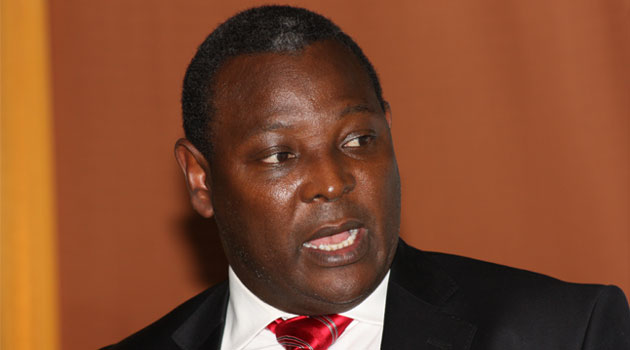
The report measures factors and policies put in place by countries, necessary to ensure prosperity of its citizens/FILE
The report measures factors and policies put in place by countries, necessary to ensure prosperity of its citizens.
These range from basic requirements that include institutions, infrastructure, macroeconomic environment, and health and primary education as well as efficiency enhancers that include higher education and training, good market efficiency, labour market efficiency, financial market development, technological readiness and market size.
According to the report highlights, Kenya’s advances on the GCI ladder was largely on the on the back of greater confidence in the Kenyan labour market efficiency indicator.
On this particular indicator, which tests a country’s investor protection positioning, Kenya is, now ranked at position 25.
At position 24 (up by seven places), Kenya’s economy scored well on the back of support from the well-developed financial markets by international standards.
Kenya has also registered improvements in the institutions pillar (now at 78th, up from 123rd five years ago).
Kenya also scored well in efficient labour market at position 25, and an increasingly more efficient goods market ranking position 62.
Reducing the number of days and procedures to start a business, Kenya is now ranked 10th.
Kenya, also scored well on its innovative capacity and is ranked at position 38 buoyed by high company spending on Research and Development (R&D) and good scientific research institutions that collaborate well with the business sector in research activities.
Further, supporting this innovative potential is an educational system that gets relatively good marks for quality 30th as well as for on-the-job training at 31st.
Kenya’s competitiveness ranking had maintained a steady top 80 in 2003 with the dawn of the Vision 2030 blueprint but slumped to number 106 in 2012 among the 142 participating countries following the post-election crisis.
Speaking in Nairobi, following a communiqué from the World Economic Forum, the Vision 2030 Delivery Board Chairman James Mwangi described Kenya’s year on year global competitiveness rise as a positive verification of private and public sector efforts to transform the country.
Mwangi said focus on infrastructural growth will help solidify Kenya’s GCI ranking next year as a number of on-going flagship projects will have borne fruits.
“Projects such as the stringent implementation of our new constitution, construction of the Standard Gauge Railway line, JKIA Terminal Four, LAPSSET, Energy Infrastructure capabilities, Galana-Kulabu Irrigation scheme and related modernisation at the Port of Mombasa, will further serve to enhance our global competitiveness,” Mwangi said.
He further said the independently evaluated report had served to pass a valid verdict on Kenya’s development agenda.
On the flipside, a number of factors are holding back Kenya’s overall competitiveness. Health remains an area of serious concern ranking 120 with a high prevalence of communicable diseases contributing to the low life expectancy of fewer than 58 years and reducing the productivity of the workforce.
The security situation in Kenya also remains worrisome ranking 128.
The top of the rankings continues to be dominated by highly advanced western economies and several Asian tigers.
For the sixth consecutive year, Switzerland led the top 10, followed by Singapore as the second-most competitive economy in the world.
In Africa, Mauritius, South Africa and Rwanda were ranked the most competitive at position 39, 56 and 62 respectively.
South Africa was however down three places as Mauritius climbed six places and Rwanda four places.
Kenya ranked 10th in Africa and 7th in sub Saharan Africa.


































